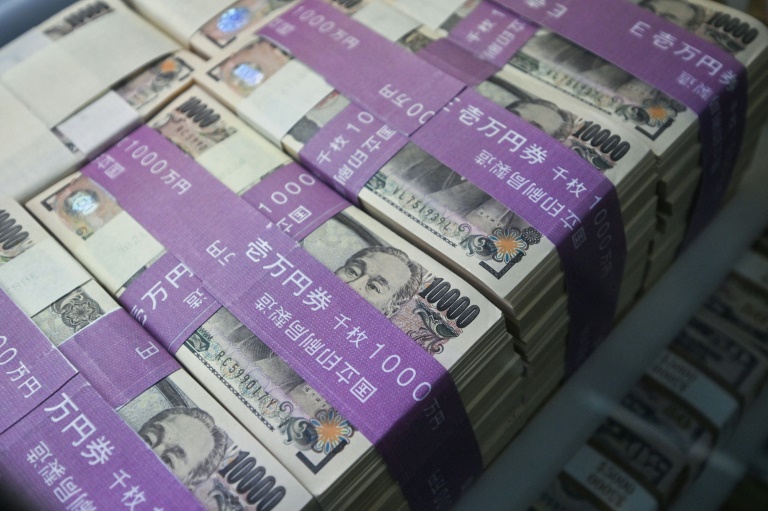Yen sinks to 34-year low past 160 per dollar

The yen sank to a new 34-year low past 160 per dollar on Monday after a forecast-beating US inflation reading dented expectations for US interest rate cuts this year
Hong Kong – The yen sank to a new 34-year low past 160 per dollar on Monday after a forecast-beating US inflation reading dented expectations for US interest rate cuts this year.
The greenback bought 160.17 yen in morning trade — its weakest since 1990 — fanning speculation that Japanese authorities would step in to support their currency.
Friday’s forecast-beating reading on the personal consumption expenditures (PCE) index came after the Bank of Japan (BoJ) refused to tighten monetary policy further at its meeting last week.
Officials have repeatedly said they are ready to step in if there are wild movements in the exchange rate, citing speculators as a key issue.
However, observers were sceptical that a first intervention since late 2022 would have much of an impact.
“Expectations of intervention having a sustained impact may disappoint given macro fundamentals do not support a sudden shift to a hawkish monetary stance,” said National Australia Bank’s Tapas Strickland.
The advance in the US PCE followed a third straight jump in the consumer price index.
That, along with push-back by US Federal Reserve decision-makers warning against cutting too soon, has led investors to revise their outlook for how many reductions there would be this year.
They now expect just one, having priced in as many as six at the start of 2024.
The Fed’s latest policy announcement this week will be pored over for fresh guidance on officials’ plans for monetary policy.
The BoJ called time on negative rates last month with its first rise in borrowing costs in 17 years as inflation finally settled around two percent after the “lost decades” of deflation and stagnation.
Friday’s decision to keep its benchmark rate between zero and 0.1 percent was keenly awaited, with the bank saying that “accommodative financial conditions will be maintained for the time being”.
The BoJ has been a global outlier in sticking to an ultra-loose policy while other central banks pushed rates up as they fought against surging inflation — causing a wide differential that saw investors buy up other currencies.
“Markets appear to be trying to push dollar-yen towards 160 in the absence of official intervention,” said Vishnu Varathan, at Mizuho Bank.
— Bloomberg News contributed to this story —
